Information from: http://edition.cnn.com/2009/TECH/06/01/microsoft.natal/index.html
Tuesday, 2 June 2009
Microsoft will release body controlled Xbox games
Microsoft said that it will release technology that lets people play video games by moving their bodies instead of using hand-held controllers. The service is called "Project Natal" and will work with any of the Xbox 360 consoles."Before, there was a barrier separating video-game players from everyone else," said Don Mattrick, senior vice president for Interactive Entertainment Business at Microsoft. "Now, with Natal, everyone can join in using the best controller ever invented: you."Natal does not use controllers, it relies on a camera to capture players' movements in 3D space. The system also recognizes faces, which allows players to log into games automatically. It can also identify voices and take commands. The facial-recognition software will let video-game characters communicate with players by identifying the emotions on their faces. Microsoft is trying to make game a more social experience. The company announced partnerships with social-networking sites Facebook and Twitter which will allow Xbox LIVE players to post messages about their gaming experiences and send screen shots to their friends in real time. The company also announced many new games, most of them sequels like "Final Fantasy," "Modern Warfare" and "Halo" The company also announced their newest "The Beatles: Rock Band" which will be available in September.
Monday, 1 June 2009
Obama is going to appoint a Cyberspace chief
President Obama has made plans to guard important US computer networks and data from online attack. This is a strategy for dealing with 'weapons of mass disruption'
Obama called cyber-security "one of the most serious economica nd national securtity challenges we face' The new cyber-security chief will oversee and coordinate internet defences across the government. The New York Times reported that the Pentagon plans to create a new military command for the internet, increasing preparations by the armed forces to conduct both offensive and defensive computer warfare. This would complement Obama's civilian structure in the White House."From now on our digital infrastructure will be treated as a strategic national asset," Obama said. "Protecting this infrastructure will be a national security priority. We will deter, prevent, detect and defend against attacks and recover quickly." Obama said. The network is presently wide open to cyber criminals and terrorists who can misrepresent themselves in a thousand different ways", he added. "Cyber offence is a thousand times easier than defence - thus breaches are most certainly occurring in all countries, virtually all the time. Nothing should surprise us."
Information from: http://www.guardian.co.uk/technology/2009/may/29/obama-cybersecurity
Thursday, 28 May 2009
Mapping Swine Flu
Pittsburgh-based biochemist created a map on April 21 to track the spread of swine flu. He created the map using the free Google maps service. By April 30 it was viewed 290,000 times and had over 3,000 comments. To create the map Niman used media articles from around the world and for foreign language articles he used Google's translation site.The map has geographic markers with different colors and characteristics like a dot or no dot in the center that show where swine-flu cases have been reported by the international and local media. The markers with dots indicate that the swine flu case was non-fatal. A yellow marker indicates that the case turned out to be negative, a pink one indicates a suspected case and a purple one indicates that the case is reportedly confirmed or probable. By clicking on the markers you can view more details in a box, such as number of deaths.
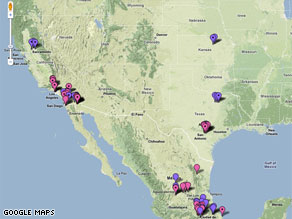
Information from: http://edition.cnn.com/2009/TECH/04/30/online.flumaps/index.html
Wednesday, 27 May 2009
Rate for Music Digital stream
The music collection society, PRS has created a pricing plan for digital streaming music. From 1 July firms will have to pay 0.085 p for each track streamed. This price has decreased from the previous price of 0.22p. According to PRS this new plan will "enable the digital market to grow.'
Companies that want to play or stream music on the Internet are legally obliged to pay royalties to the artist according to the Copyright,Designs and Patents Act of 1988. The radio service Pandora ended its UK stream at the beginning of 2008. In March 2009 YouTube announced that it was removing all music videos to UK users after they could not reach a new licensing agreement with the PRS.
Information from: http://news.bbc.co.uk/1/hi/technology/8068154.stm
Tuesday, 26 May 2009
New York Times names first social media editor
The New York Times named Jennifer Preston to be their first social media editor. Their job is to: " concentrate full-time on expanding the use of social media networks and publishing platforms to improve New York Times journalism and deliver it to readers."
She will also "help us get comfortable with the techniques, share best practices and guide us on how to more effectively engage a larger share of the audience on sites like Twitter, Facebook, YouTube, Flickr, Digg and more" She will also have to constantly be aware of developments in social media.
Newspapers sadly are starting to not be seen as much on paper and more on people's screens.
Information from: http://www.guardian.co.uk/media/pda/2009/may/26/new-york-times-twitter
Star Trek Inspired Technology
With the remake of Star Trek is out in theaters; The Guardian online looked into how much of the technology in Star Trek is used in real life.
Today's equivalent of the Star Trek communicator is a flip-up mobile phone.

Kirk signs his daily captain's log on an electronic notepad like a PDA.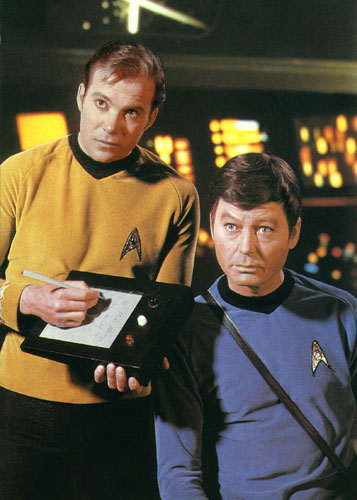

The bridge of the Starship Enterprise could only be seen on the view-screen. Today we have flat screen tv's
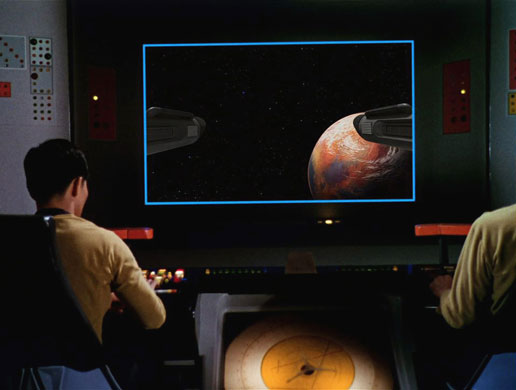

Uhura had an earpiece. Today we have bluetooth.
The weapon was a hand-held phaser. Today we have a Taser.

Officers checked new environments with tricorders. Today, many HAZMA emergency response teams use chemical detection equipment.

Video-conferences. Today we have it on a bigger scale.
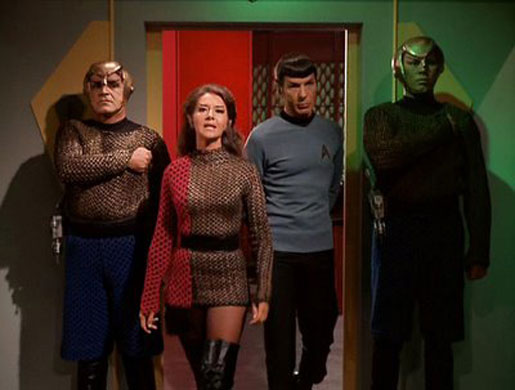
Motion detector doors. Today, we have automatic doors in many places.
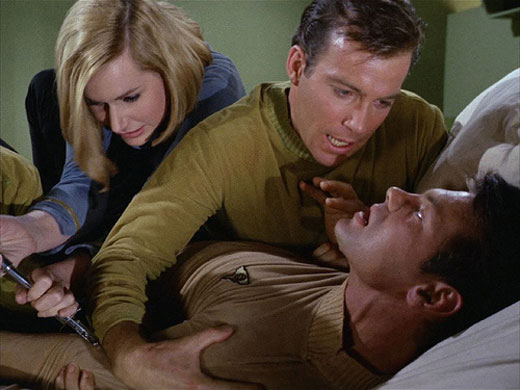
Hypospray devices were used to pass medicine through skin without being painful. Today, we have Jet injectors.
Transporters do not exist yet but they might do in the next 300 years. Physicist Dr.Ping Koy Lam and student Warwick Bowen have looked at teleporting test equipment . They had a sucessful test using a laser beam of light disembodied in one location and rebuilt 1 meter away in a second.
Information and Images
from:http://www.guardian.co.uk/technology/gallery/2009/may/15/star-trek-technology?picture=347310020
New iPod nano has a camera
The new iPod nano has a camera. It's exactly like the current iPod nanon but the screen is wider (I.5:1) and the click wheel and button is smaller. It doesn't have megapixels or storage capacity. The new iPod nano will be avaliable in September.
Information from: http://gizmodo.com/5270339/is-this-the-next+gen-ipod-nano-with-built+in-camera

Information from: http://gizmodo.com/5270339/is-this-the-next+gen-ipod-nano-with-built+in-camera
Millions of Voices heard on Obama's inaguaration
MIT's senseable city lab created a visualization of call activity from all over the world during Obama's inaguaration. Over 138 countries came together. The biggest callers were Canada, Great, Britan,France and Puerto Rico. In the US it was California, Florida, New York, Texas and Georgia.
Information from:http://gizmodo.com/5270200/watch-the-world-lit-up-by-millions-of-voices-during-obamas-inauguration
Bring back the Polaroid
In Enschede, the Neterlands a group of Dutch scientists and an Austrian salesman have a goal to reinvent Polaroid's instant film. Since digital cameras have become popular, Polaroid stopped making their film las year. The group of scientists still feel there are people out there who want the Polaroid back (me being one of them) They hope to start production later this year. Mr. Kaps estimates the number of Polaroid instant cameras in circulation at one billion. 30 million film packs were produced in 2007 and 24 million in the beginning of 2008. They are looking for chemicals that can mimic what the Poloroid once did . They are looking for a form of latex that can be coated easily onto a gelatin base to recreate the "timing layer" of Polaroid film which controls the developing process.

Information from: http://www.nytimes.com/2009/05/26/technology/26polaroid.html?_r=1&ref=technology

Information from: http://www.nytimes.com/2009/05/26/technology/26polaroid.html?_r=1&ref=technology
Images:http://www.newmediastudies.com/art/daffs-s.jpg
Twitter on TV
Twitter is in the works of becoming a TV series. The series will be based on the quick status messages. The series will be unscripted. Novelist Amy Ephron will team up with Reveille Productions, the studio behind the American version of The Office and Brillstein Entertainment the studio behind The Sopranos. According to Variety magazine the program will be "putting ordinary people on the trail of celebrities in a revolutionary competitive format." This isn't surprising knowing the popularity and growth of celebrities using Twitter. Twitter's co-founder Biz Stone says that the company has "a lightweight, non-exclusive,agreement with the producers which helps them move forward more freely"
Information from: http://www.guardian.co.uk/technology/blog/2009/may/25/twitter-tv
Wednesday, 25 March 2009
Response to Guardian article on education
An article in the Guardian today caught my interest describing a proposal for primary schools that focus more on learning about Twitter and Wikipedia than on learning history. The proposals state that children should leave school with a knowledge of blogging and pod casts and how to use Twitter and Wikipedia to find information and communicate. It also says that children must 'gain "fluency" in handwriting and keyboard skills, and learn how to use a spellchecker alongside how to spell.' I find the idea that education is focusing more on these new technologies than traditional subjects a bit shortsighted especially as these students are under the age of 11. They should have an understanding of the changes in technology but not at the expense of traditional subjects like history.
Information from: http://www.guardian.co.uk/education/2009/mar/25/primary-schools-twitter-curriculum
Information from: http://www.guardian.co.uk/education/2009/mar/25/primary-schools-twitter-curriculum
Monday, 23 March 2009
Response to Trent Batson's article on Google
After reading Trent Batson's response to 'Is Google Making us Stupid' I found his argument that the web is just a contemporary way of exchanging ideas interesting. In some cases I believe that his argument is correct for example it is valid when exchanging opinions. However, I have a problem when it comes to relying on it for facts. If you look at Wikipedia you do not know who the contributors are and if they have any credibility. When a book is published an author has to provide evidence that the facts contained in the book have some basis in credibility, not so on the web where no facts are required or checked.
Sunday, 15 March 2009
planet google
Google is an amazing success story. Just over a decade old, started by a couple of 25 year old Stanford graduate students in their dorm room, today over 68% of all internet
searches are done through Google.
Google is a brilliantly run company, highly democratic, hugely profitable.
Employees commonly interact with its founders.
If only our banks and auto companies were run half as well, we would not be in the fix we are now.
It is a mantra of Google that ‘ more information is better information.’
And here is my big problem with Google.
The right of all of us the sacred right to privacy.
Yahoo recently handed over personal data of thousands to the Chinese government,
leading to hundreds of arrests.
How soon will Google, despite all their protests, do the same?
searches are done through Google.
Google is a brilliantly run company, highly democratic, hugely profitable.
Employees commonly interact with its founders.
If only our banks and auto companies were run half as well, we would not be in the fix we are now.
It is a mantra of Google that ‘ more information is better information.’
And here is my big problem with Google.
The right of all of us the sacred right to privacy.
Yahoo recently handed over personal data of thousands to the Chinese government,
leading to hundreds of arrests.
How soon will Google, despite all their protests, do the same?
Is google making us stupid?
I agree that Google is making us stupid because it is the most efficient search engine and I for one have become very reliant on it as a research tool. Anytime that I need to know something I look it up on Google. It is the lazy way out. I also find that it is harder to absorb information when I am reading it on the net. I do find myself skimming the articles and grabbing what I need rather than reading the whole piece.
Google, in short, is the Cliff notes for the 21st century.
Google, in short, is the Cliff notes for the 21st century.
Subscribe to:
Comments (Atom)